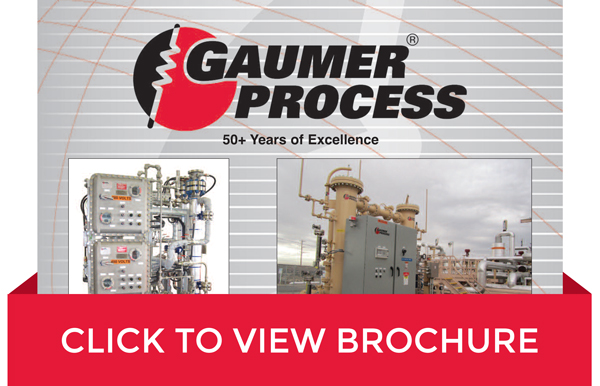800.460.5200
-

WELCOME TO GAUMER
Gaumer Process is an innovative and leading designer
and manufacturer of electric process heaters and
engineered systems for Power Generation, Oil & Gas,
Refinery, Petrochemical, Pulp & Paper, Marine and
Mining industry. -

ELECTRIC HEATERS & CONTROLS
Low voltage (up to 600 V) & Medium Voltage (4160 V)
Gaumer Process has the experience and expertise to
provide certified electric process heaters and control
panels to domestic and international market. Serving
Global industry since 1962. -

FUEL GAS CONDITIONING
Gaumer Process provides standard or custom
engineered fuel gas conditioning systems to meet the
most stringent fuel gas quality requirements of gas
turbines, engines and compressors. -

EXPEDITED DESIGN & MANUFACTURING
Large inventory of heater elements, experienced
engineering, procurement & project management team,
dedicated field service, start-up/commissioning
assistance and 24/7 emergency support, ensures that
the most aggressive delivery schedules are met with
confidence.
PHOTO GALLERY
LEARN MORE
- Lunch & Learn
- Request a Quote
- Product Brochure Pdf, 7.7 MB, opens in new window.
- Immersion Heater Catalog Pdf, 510.4 kB, opens in new window.
- 300 Lb Immersion Heater Catalog Pdf, 511 kB, opens in new window.
- 600 Lb Immersion Heater Catalog Pdf, 510.9 kB, opens in new window.
- Screw Plug Heater Catalog Opens in new window.
- SCRP Control Panel Catalog Opens in new window.
- Technical Info
GAUMER PROCESS · 13616 HEMPSTEAD ROAD · HOUSTON, TX 77040 · TEL: +1 (800) 460-5200 · [email protected]
© 2018 Gaumer Process All rights reserved.










